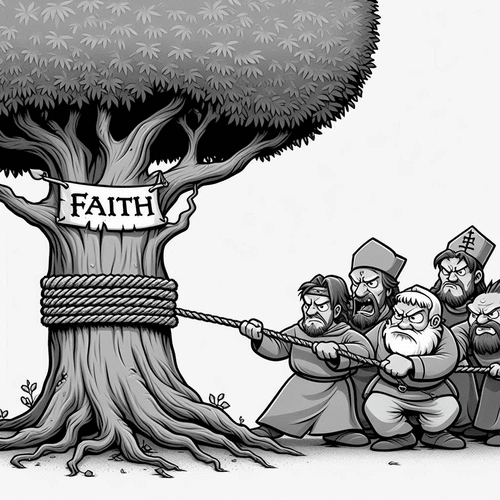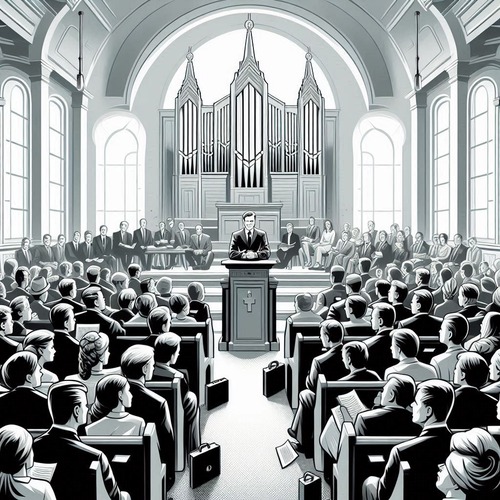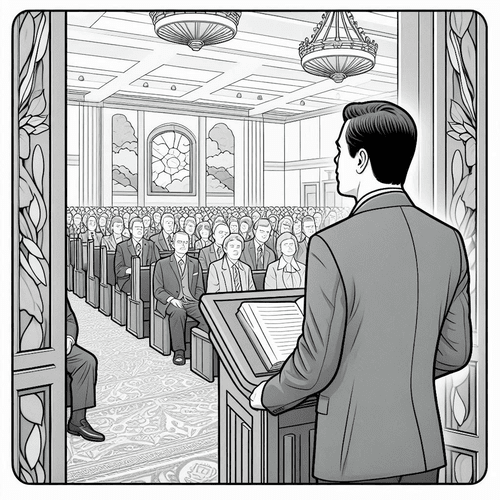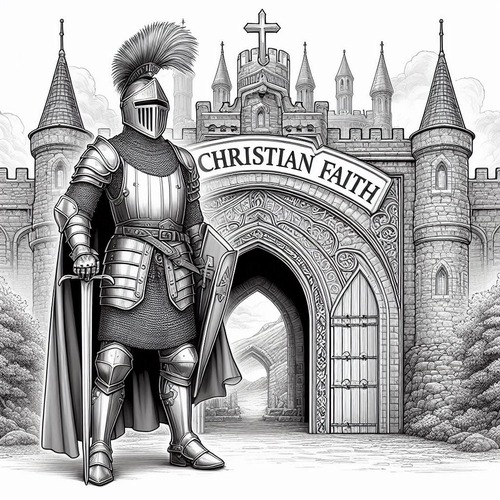Christianity’s Rational Foundations: Challenging Critiques of Faith
Christ Offers—A Truer and Better Emancipation
Overview: In the 18th century Enlightenment, influential thinkers like Voltaire, Diderot and Hume levelled powerful critiques against Christianity. They viewed the Church’s doctrinal authority as an impediment to reason, free thought, and human liberty. Rationality and unfettered intellectual inquiry, they argued, stood opposed to Christianity’s dogmas rooted in outdated superstition. However, this hostile perception stemmed from a reductive understanding of Christianity’s rational foundations,its philosophical moorings in reason and its offer of a better and truer freedom.
The Mirage that was Enlightenment’s Liberty The Enlightenment thinkers promised liberation by rejecting divine revelation and overthrowing the authority of church and scripture. To their credit, it must be said they were partly objecting to the corrupt excesses and unbiblical overreaches of the church in that era. However, their alternative vision of liberty was still an illusory pipe dream. True freedom is not found in casting off moral restraints, but in being released from the real shackles that enslave the human soul—the guilt and power of sin, the fear of death, and the haunting feeling of meaninglessness. The liberation Christ offers is a superior and tangible emancipation—rather than just philosophical platitudes. While the Enlightenment posed as championing human autonomy, its legacy is one of moral relativism, individual angst, and ethical paralysis. Conversely, obeying Christ’s divine revelation paradoxically unleashes genuine liberty—freedom from condemnation, freedom to experience fullness of life, purpose, peace, and eternal belonging in relationship with our Creator. The Enlightenment project sought to dethrone God, but instead, only enthroned Human Reason as a hollow deity. Submitting to Christ breaks the bonds of our self-inflicted prisons and ushers true flourishing despite our finite limitations.
Christianity’s Rational Foundations: Upholding Reason as a Divine Gift Far from being anti-rational, Christian theology has celebrated human reason as a noble faculty reflecting the divine Logos or Logic. The great medieval thinkers like Anselm, Aquinas and Augustine produced substantive philosophical and rational arguments underpinning theological truths through rigorous logic and metaphysical reasoning, interfacing with ideas from Aristotle and Plato.
Pioneers of Human Rights and Liberty Moreover, Christianity played a vital role in laying the philosophical foundations for modern human rights, democratic governance and personal freedoms that Enlightenment thinkers rightly prized. Christian doctrine affirmed the inherent dignity and value of all humans as divine image-bearers. This spurred the abolition of dehumanizing practices like slavery, infanticide and gladiatorial games in Christendom. Protestant reformers like Martin Luther championed individual liberty of conscience and the right of private judgment over ecclesiastic authoritarianism. Ideas of natural law stemming from Christian tradition inspired Enlightenment theories of natural rights and social contracts.
Christianity’s Rational Foundations: Upholding Human Inquiry While Christianity opposes unrestrained rationalism or pure secular humanism which reject divine revelation, it never disavowed human reason and intellectual engagement altogether. Responsible inquiry into nature and philosophy flowed organically from Christianity’s core premise of an intelligible universe created by a Rational Mind open to human exploration. Christian scholastics pioneered medieval universities and the modern scientific method found encouragement in theological frameworks.
Prioritizing Spiritual and Moral Truth Admittedly, where Enlightenment thinkers clashed with Christianity was the primacy the latter placed on revealed spiritual and moral truths above unlimited human autonomy in inquiry. Christian theology affirmed God’s communication through scripture as an objective authority defining ethical absolutes to preserve human dignity and flourishing. The Enlightenment’s elevation of reason to the degree of rejecting core Christian doctrines proved its undoing—divorcing reason from objective moral foundations and treating rationality alone as the final arbiter.
Integrating Faith and Rationality Ultimately, Christianity emerges as a powerful voice upholding humanity’s rational capacity—a gift reflecting the Judeo-Christian doctrine of being created in God’s image as thinking beings. While human inquiry has appropriate limits in light of divine revelation, faith and reason were never meant as adversaries but allies in comprehending deeper truths about the created reality we all inhabit. Recapturing this synthesis of philosophy and theology can correct misrepresentations from the Enlightenment and recover Christianity’s vibrant rational roots.
References: McGrath, A. (2016). Mere Apologetics: How to Help Seekers and Sceptics Find Faith. Baker Books. : Lewis, C. S. (1952). Mere Christianity. HarperOne. : Packer, J. (1973). Knowing God. InterVarsity Press. : Chesterton, G.K. (1908). Orthodoxy. John Lane Company. : Kreeft, P. (1994). Christianity for Modern Pagans: Pascal’s Pensées Edited, Outlined, and Explained. Ignatius Press.
Related Reads
Editor's Pick
SUPPORT US:
Feel the Holy Spirit's gentle nudge to partner with us?
Donate Online:
Account Name: TRUTHS TO DIE FOR FOUNDATION
Account Number: 10243565459
Bank IFSC: IDFB0043391
Bank Name: IDFC FIRST BANK






